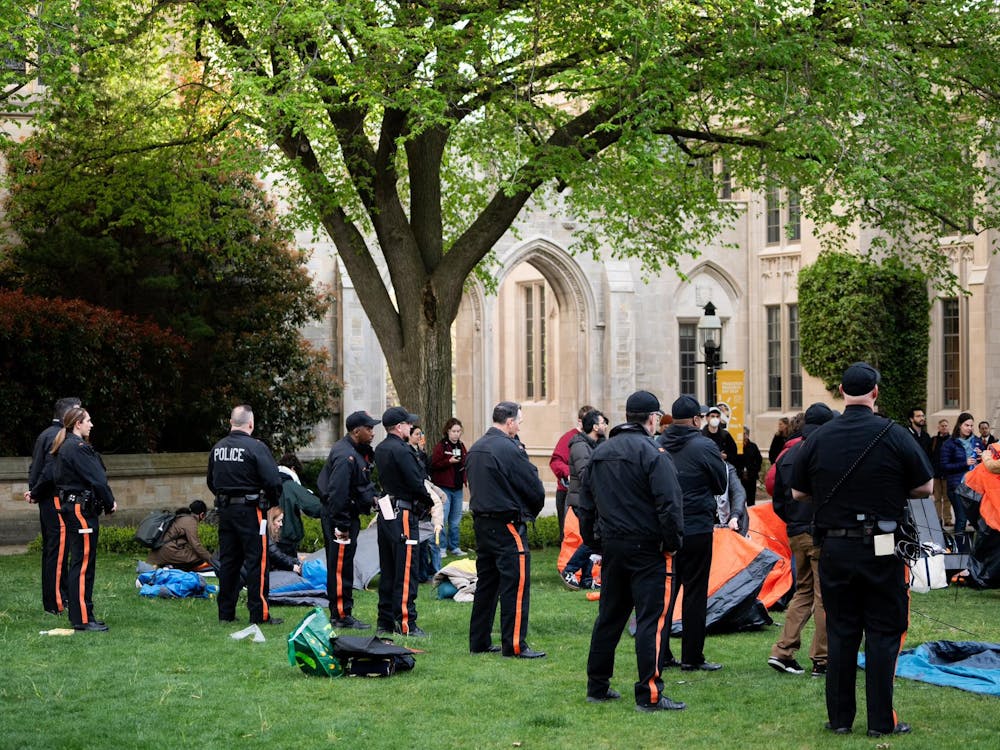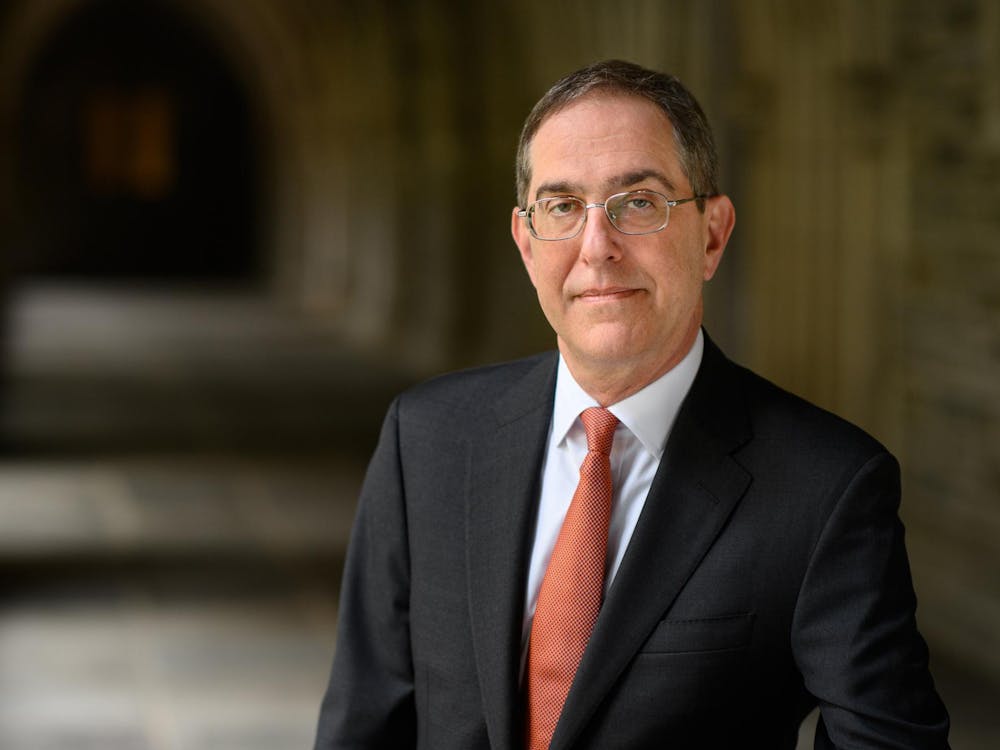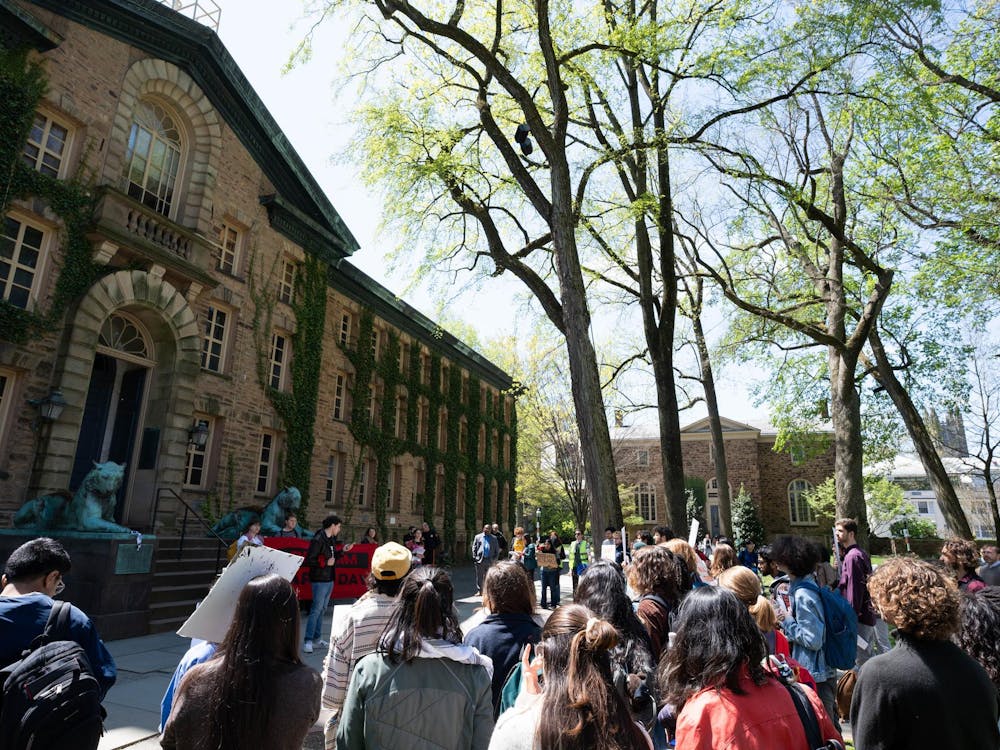It seems that each time a minority student population confronts University administrators about incidents of racial insensitivity within their communities, a predictable response emerges. Typically, a chorus of voices from both within and outside the campus reacts against the demands of some students for policies or administrative action to punish problematic speech.
These defenses of free speech vary in tone from sympathetic to dismissive of students' concerns. But after a certain amount of repetition, many of these arguments start to reflect a common view on the value of speech: we’re free to talk, so let’s all speak up! An observer gets the impression that there can never be too many people speaking up for the right of everyone else to speak up. It’s as if all this talk about the dangers of silencing viewpoints has made us feel that a conversation can always use more of our own voices and more think pieces.
Sometimes we just need to shut up and listen — never through coercion, but voluntarily. This is particularly an issue when those of us who are white, and do not ourselves suffer the consequences of racism, draw attention away from the voices of people of color through over-zealous engagement. Of course, it is always important to defend the right to free speech. But the fact of this freedom’s importance shouldn’t excuse the many commentators inside and outside of campuses, on the staffs of school papers and in national publications, from making certain judgment calls: when do we over-contribute to a conversation? How do we reconcile our participation in the dialogue on race and speech with the structures of privilege that benefit us even as we make ourselves heard? When should we just shut up and listen?
As an ally to students of color, it is more important to me that I remain conscious of when to contribute to a conversation and when to listen than that I agree wholeheartedly on the specific tactics of the leaders of organizations of students of color. I asked myself when I read about Yale: if I was a student there and had heard about the upcoming protest, would I have attended as an ally? In this particular case, I’m still not entirely sure. I don’t think that Erica Christakis should have to step down from her responsibilities as associate master of the Silliman residential college, and I didn’t need a lengthy series of articles to arrive at this position.
But I recognize that this demand forms only a small piece of an effort on the part of students to draw attention to the gulf between students and administrators who appear out of touch with the ways that minority students experience the university, as students of color deal with profiling by police, continue to live in a residential college named after one of our nation’s most unabashedly white supremacist figures, and have seen the indifference of the administration to the departure of important faculty of color. I find it less urgent to defend an administrator currently in control of institutional resources than to lend my support to these protesting students. These students represent just the tip of the iceberg of students of color across the country who are angry that, in the words of Missouri student Abigail Hollis, “the way white students are treated is in stark contrast to the way black students and other marginalized students are treated.”
Part of being a good ally means engaging seriously with the ideas of activist students of color, through dialogue and critique. We all, allies and students of color alike, may need to stand firm against some of our activist peers, as in some cases the pressures of collective action compromise fairness to individuals, like in the unjust ousting of Claremont McKenna Dean of Students Mary Spellman, who was forced to resign after a regrettably phrased email acknowledging the reality of white privilege at the university.
But it’s important that we first support our fellow students, and remember that the media portrayals of groups of shouting students represent spaces that are wildly different from the everyday context of student life, where minority students deal alone with a majority of white classmates and professors unfamiliar with experiences of harassment and intimidation and unaware of the way that language can evoke these experiences. So let those of us who consider ourselves allies be careful to find the right time and place for criticism, and dedicate ourselves first to active support of our peers both in Princeton and in the nation as a whole.
It’s time for me to shut up now.
Max Grear is a sophomore from Wakefield, R.I. He can be reached at mgrear@princeton.edu.









